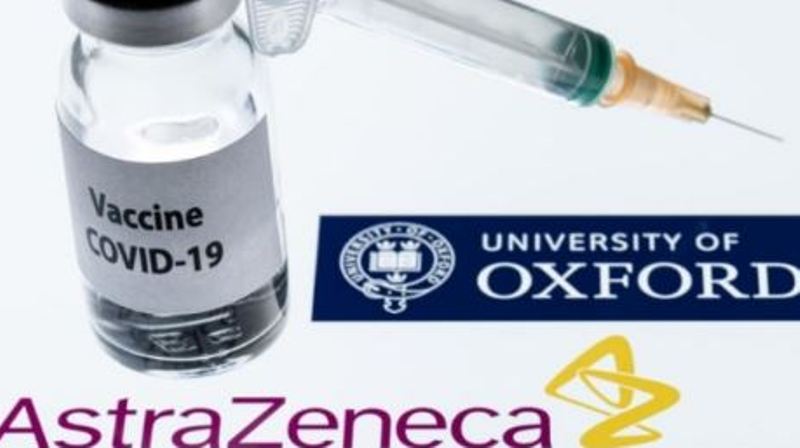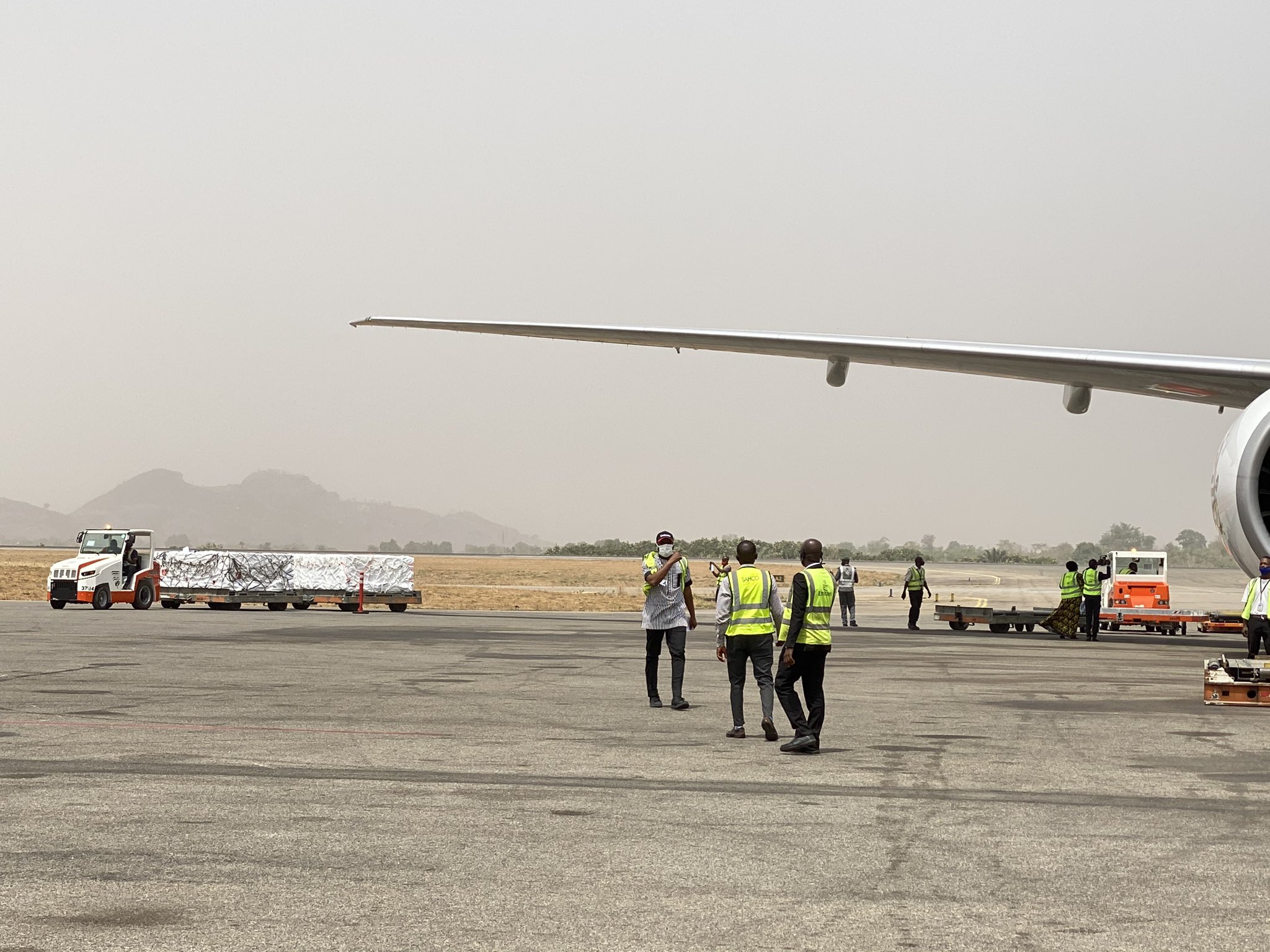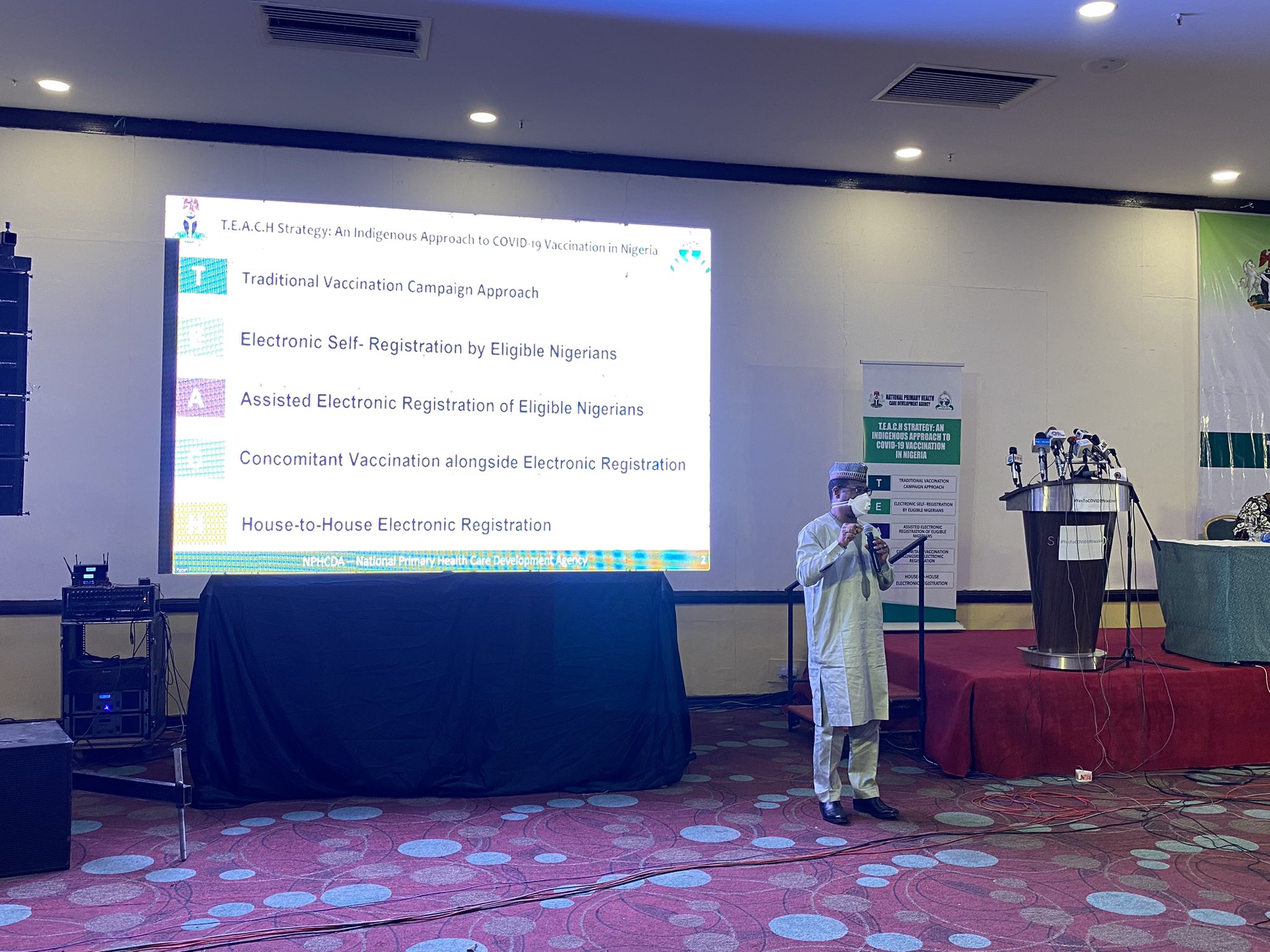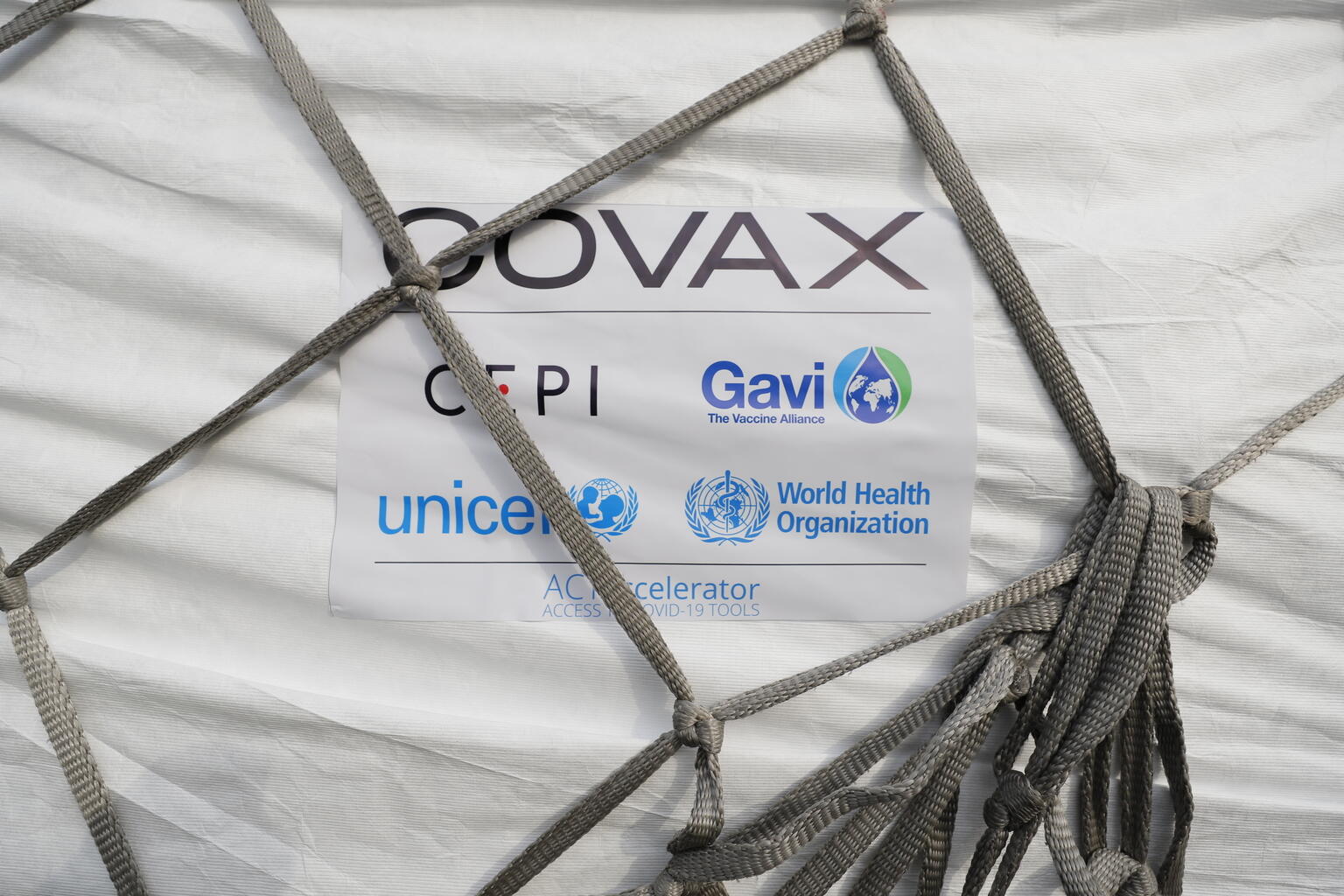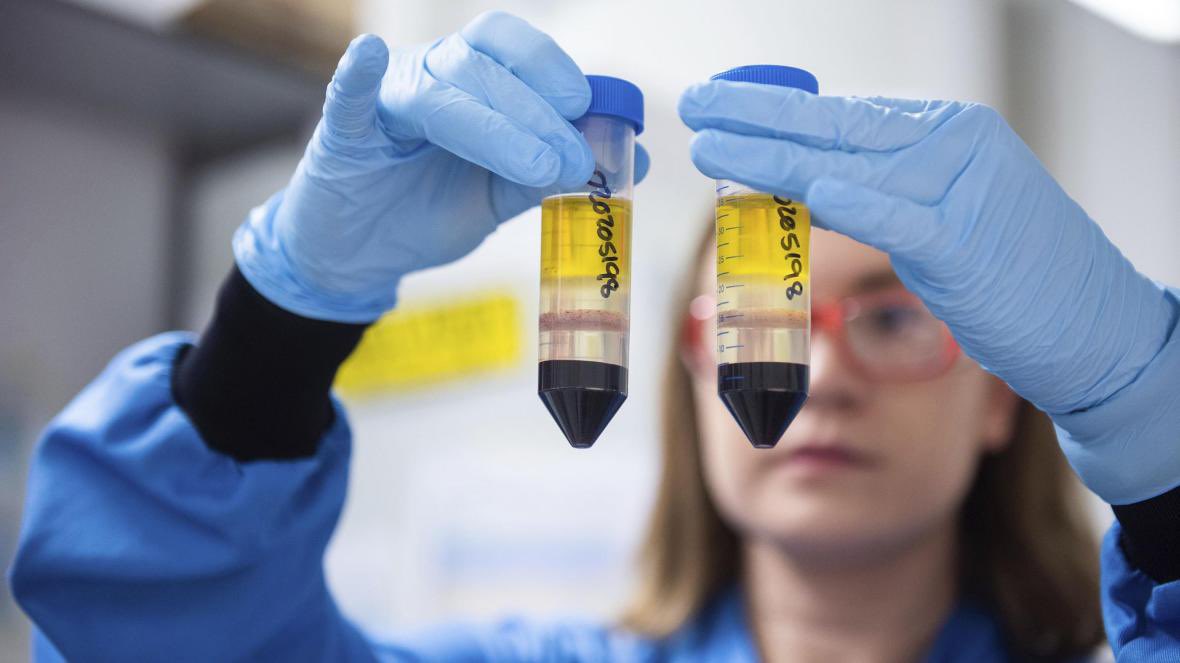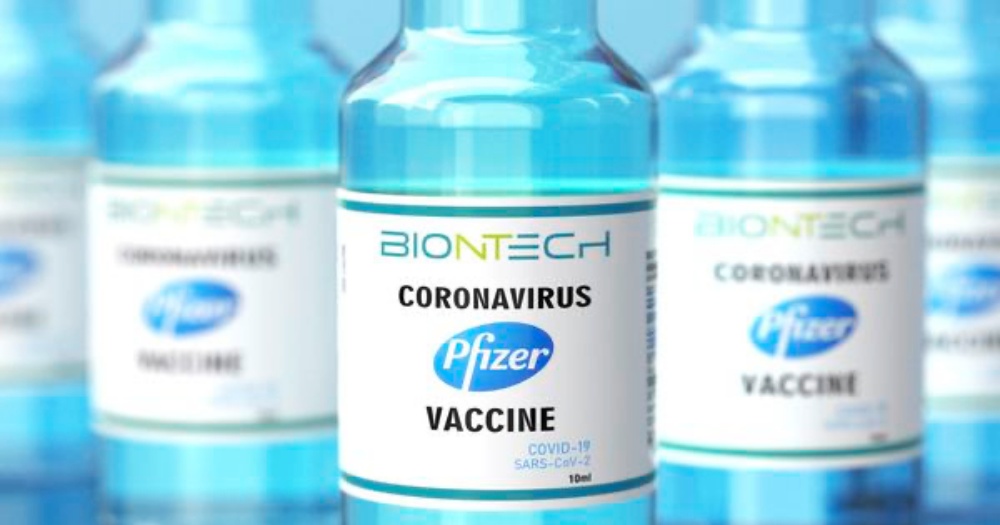The first batch of Oxford/AstraZeneca COVID-19 vaccine, which is about 3,924,000 doses, has arrived in Nigeria.
TheNewsGuru.com (TNG) reports the COVID-19 vaccine arrived in the country via the Nnamdi Azikiwe International Airport, Abuja.
A small ceremony chaired by Boss Mustapha, the Chairman of the Presidential Task Force (PTF) on COVID-19 is currently being held at the VIP Protocol section of the airport to receive the vaccine.
Meanwhile, the Executive Director of the National Primary Health Care Development Agency (NPHCDA), Dr Faisal Shuaib had said at the end of the ceremony, a few vials of the vaccines would be handed over to the National Agency for Food and Drug Administration and Control (NAFDAC).
TNG reports NAFDAC is expected to analyze the vaccine over a period of two days, i.e. Wednesday March 3rd and Thursday March 4th.
Further to the clearance by NAFDAC, the PTF, NPHCDA, the federal ministry of health and strategic leaders will be at the treatment center of the National Hospital on Friday March 5th 2021, where the first vaccination site will be set up to commence the vaccination of the frontline health workers and support staff.
According to the Executive Director of the NPHCDA, on Monday March 8th 2021, more vaccination sites would have been set up at designated locations such as National Assembly clinic, State House clinic and Federal medical centre, Jabi where strategic leaders such as the SGF, Senate President, Speaker of the House of Representatives, Attorney General of the Federation, Inspector General of Police, the Ministers and Ministers of States, Senators, House of Representatives, traditional leaders and religious leaders would be vaccinated.
“After this launch and initial roll-out phase, Vaccine distribution to the States for the phase 1 vaccination process will begin. This phase is the vaccination of all frontline health workers, their supporting staff and strategic leaders.
“Deployment of vaccines to the States would be based on the assessment of their level of preparedness. Some of the parameters that would be used for the assessment include adequate maintenance of their cold chain storage facilities, adequate preparation for logistic transportation to the ward/ health facility, adequate security in place during transportation and at vaccination sites, completion of training of health workers, efficient social mobilization activities in place, adherence to protocol for vaccine deployment.
“Working with CACOVID, plans are on ground for a cargo plane provided by them to transport the vaccines to the States by air. States without a functional airport will have their vaccines transported by road using vans with fitted Cold Cabins, from the nearest airport. The vaccines will be stored at the State Cold Stores, from where they will be transported by road to LGA Cold Stores
“Once activities have commenced in the States, there would be strict monitoring by PTF, FMOH, NPHCDA and independent bodies such as EFCC, DSS, ICPC, and Civil Society Organizations.
“States/health facilities/health workers that are identified as defaulting from the standard protocol and guidelines for this phase of vaccination would be sanctioned.
“While this is ongoing, the National team would be ready for the arrival of the next batch of vaccines which would be used for the next phase of vaccination.
“Phase 2 vaccination process involves vaccination of the elderly from 50 years and above. This has been sub grouped into 2, with the vaccination of 60 and above occurring first followed by 50 — 59years. This will occur across all 36 States and the FCT. Those who are eligible for vaccination that have not registered electronically, would be assisted at the designated health facility and would be vaccinated.
“The phase 3 vaccination process involves vaccination of those between 18 — 49years with co-morbidities (such as hypertension, diabetes, lung disease, other heart disease, liver or renal disease, etc). Individuals at ages 50 and above with co-morbidities would already have been Immunized within their age group.
“The phase 4 vaccination process would involve vaccination of the rest of the eligible population between the ages 18 — 49years. It is worthy to note that at each phase of vaccination, the level of preparedness of the States are assessed before vaccines are deployed and accountability measures have been put in place to ensure strict compliance to the vaccination process. Pregnant women will be evaluated by their health providers to weigh the benefit versus risk, before a decision is taken to vaccinate them,” Dr Shuaib said at a press briefing on Monday.
The NPHCDA Executive Director urged all eligible Nigerians aged 18 years and above to be patient, saying they will eventually be vaccinated.
“As the vaccines arrive in batches due to limited supply we will inform Nigerians about who and where to receive the vaccine.
“A comprehensive and transparent roll-out plan that involves public vaccination of President Muhammadu Buhari and other important dignitaries and stakeholders has been developed,” Dr Shuaib added.
